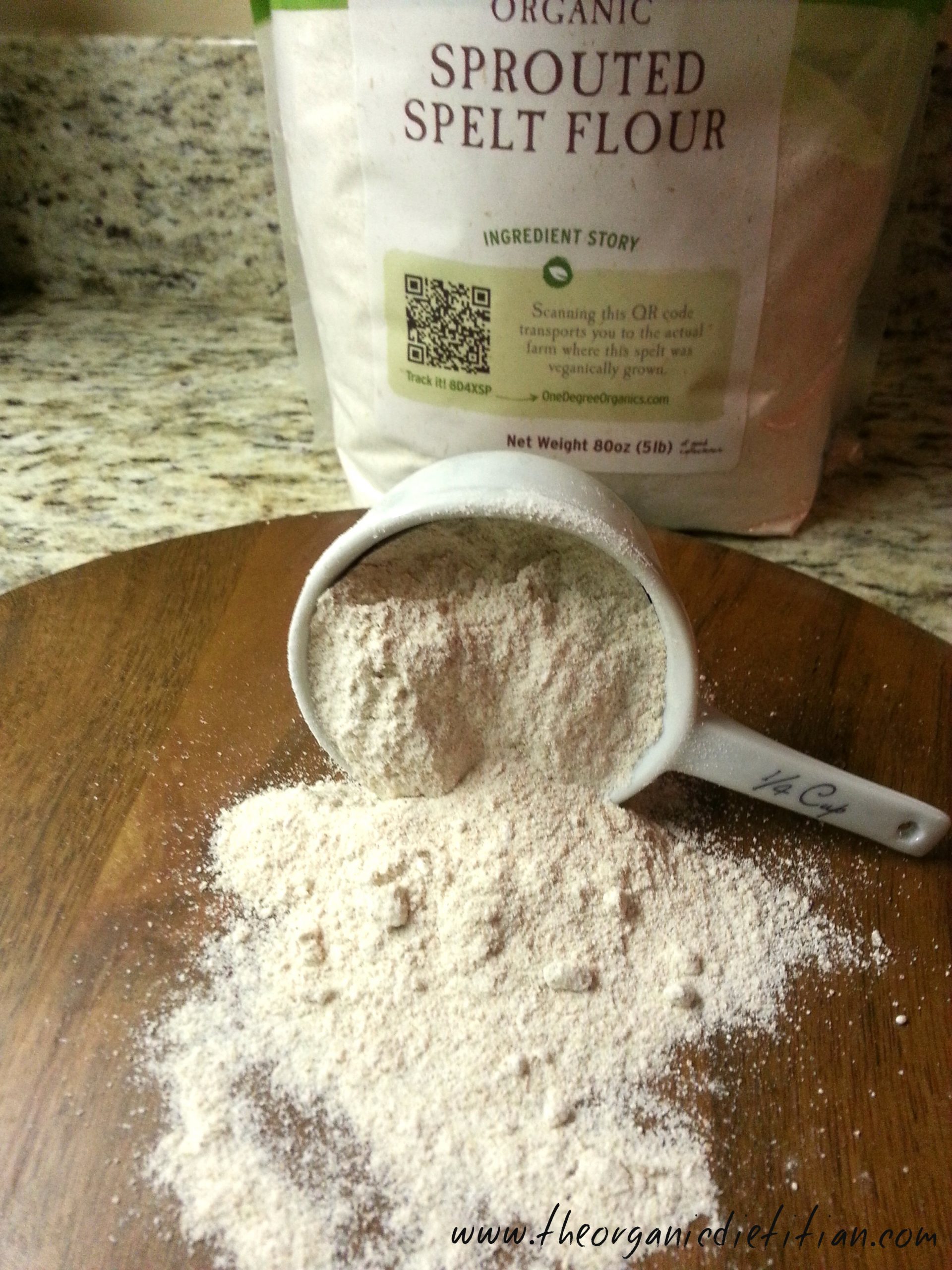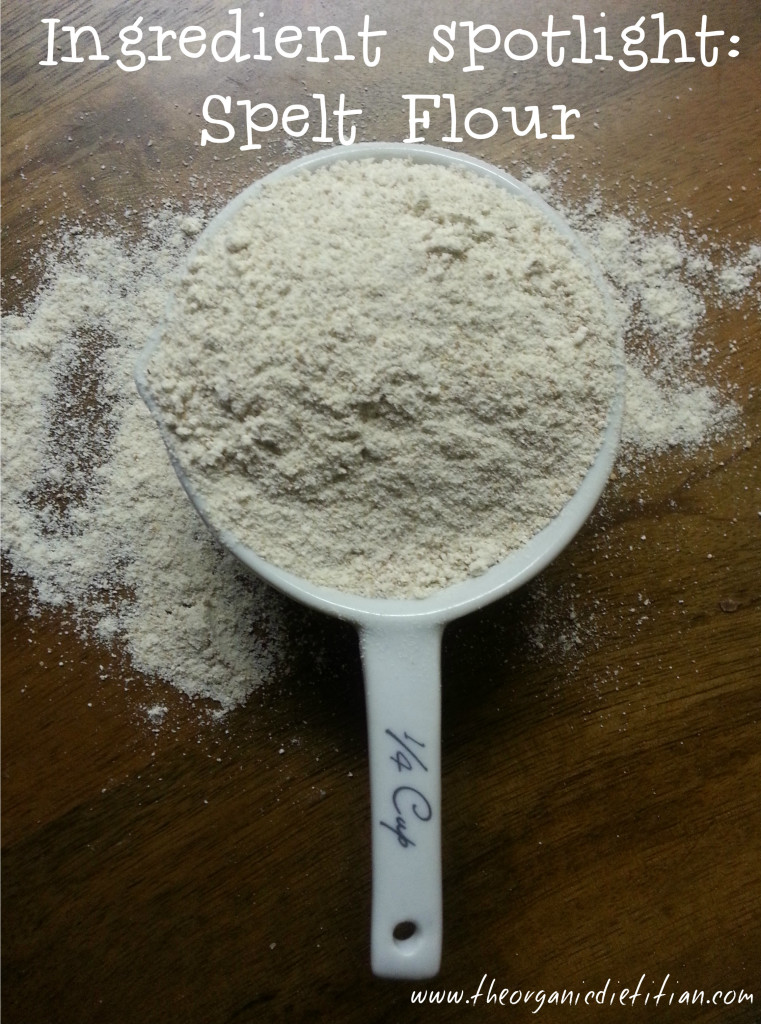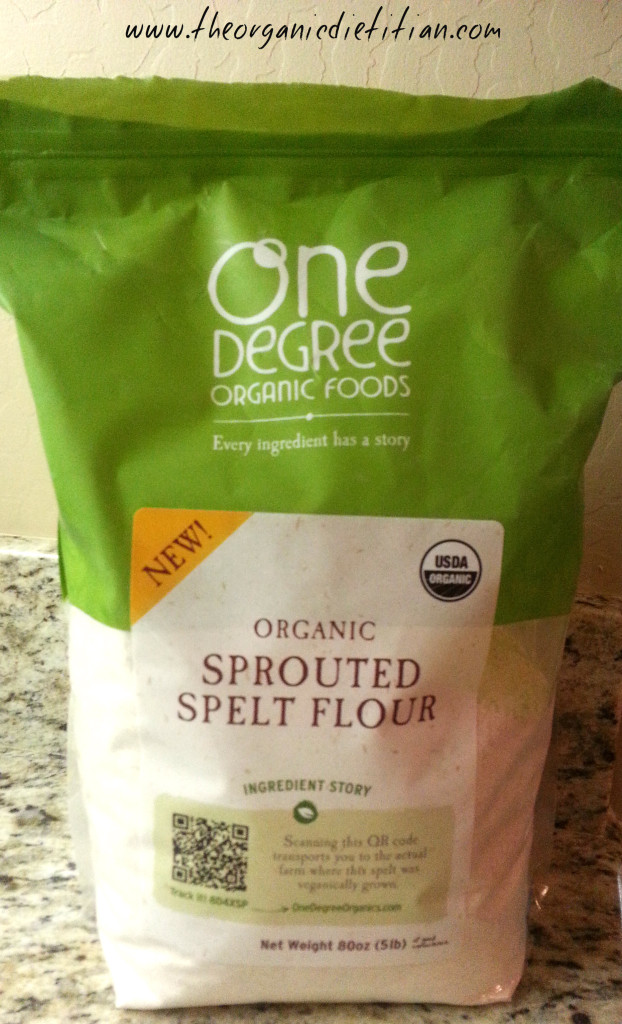9 November, 2013
Ingredient Spotlight: Spelt Flour

If you have not noticed yet I love to use spelt flour in any recipe that calls for flour. Sprouted spelt flour to be exact. Spelt flour is a lesser known grain than its cousin wheat. Wheat, and a lot of grains for that matter, have gotten a bad rap recently. More and more people are following gluten free and grain free diets. Some people do it because they have to and others do it because they choose to.
For those that are eating gluten and grains it is important to choose the right types. White flour is a highly processed and is made from stripping wheat of everything it has that is beneficial. During the processing of white flour they add synthetic vitamins and remove the fiber content. Your body absorbs processed grains pretty quickly which can increase blood sugar levels faster and then cause a quick crash which can make you feel hungry again (and tired).
What is Spelt?
Spelt is one of the oldest cultivated grains having roots as far back as 6000 years in ancient Mesopotamia. Spelt has kept many of its original characteristics which makes for a better nutrient profile and easier digestion than wheat.
Nutrients in Spelt
Spelt can offer more nutrients when compared to wheat. Spelt contains vitamin B2, manganese, niacin, thiamin, and copper.
Spelt and Digestion
Spelt may be easier to digest than common wheat. The gluten in spelt is water soluble and when mixed, it will easily breakdown versus wheat which will get stronger. Spelt has a fragile gluten which is easily broken down during chewing and makes the digesting process easier. When wheat is digested is can form a ball making it harder to digest.
Enzymes are essential to digestion. Enzyme inhibitors prevent these enzymes from working efficiently during digestion. Modern wheat needs an enzyme inhibitor in order to fight off pests because it does not have an outer hull that protects it from pests. Spelt does not need an enzyme inhibitor because it contains a hard outer hull that protect it from pests.
Sprouted Flour
Spelt flour is great but if you can get sprouted spelt flour then that is fantastic. The sprouting process provides many benefits to your whole grain flour. Sprouting increases the bio availability of nutrients which will create a better nutrient profile. Sprouting also makes the grain act more like a plant which is more easily digested and your body with use the sugars for energy instead of storing them as fat.
So you can see why I love using spelt flour and better yet sprouted spelt flour. If you can not find the sprouted variety then regular spelt flour is still a great choice. Spelt flour can replace any flour 1:1 which makes it really easy to cook or bake with in any recipe.
Have you every made anything with spelt flour? Please share in the comments! I’d love to hear from you.












